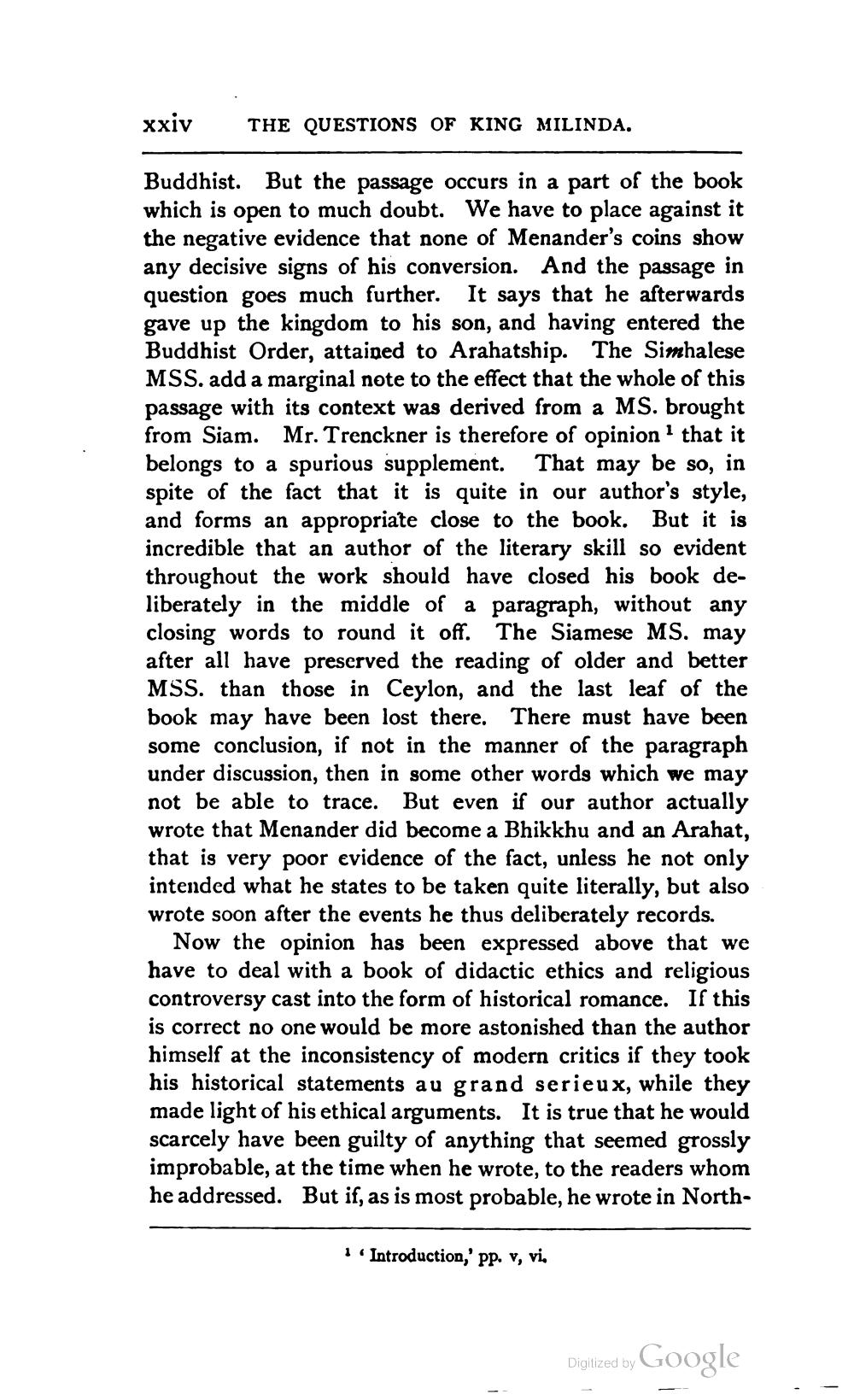________________
xxiv
THE QUESTIONS OF KING MILINDA.
Buddhist. But the passage occurs in a part of the book which is open to much doubt. We have to place against it the negative evidence that none of Menander's coins show any decisive signs of his conversion. And the passage in question goes much further. It says that he afterwards gave up the kingdom to his son, and having entered the Buddhist Order, attained to Arahatship. The Simhalese MSS. add a marginal note to the effect that the whole of this passage with its context was derived from a MS. brought from Siam. Mr. Trenckner is therefore of opinion that it belongs to a spurious supplement. That may be so, in spite of the fact that it is quite in our author's style, and forms an appropriate close to the book. But it is incredible that an author of the literary skill so evident throughout the work should have closed his book deliberately in the middle of a paragraph, without any closing words to round it off. The Siamese MS. may after all have preserved the reading of older and better MSS. than those in Ceylon, and the last leaf of the book may have been lost there. There must have been some conclusion, if not in the manner of the paragraph under discussion, then in some other words which we may not be able to trace. But even if our author actually wrote that Menander did become a Bhikkhu and an Arahat, that is very poor evidence of the fact, unless he not only intended what he states to be taken quite literally, but also wrote soon after the events he thus deliberately records.
Now the opinion has been expressed above that we have to deal with a book of didactic ethics and religious controversy cast into the form of historical romance. If this is correct no one would be more astonished than the author himself at the inconsistency of modern critics if they took his historical statements au grand serieux, while they made light of his ethical arguments. It is true that he would scarcely have been guilty of anything that seemed grossly improbable, at the time when he wrote, to the readers whom he addressed. But if, as is most probable, he wrote in North
1
Introduction,' pp. v, vi.
Digitized by Google




